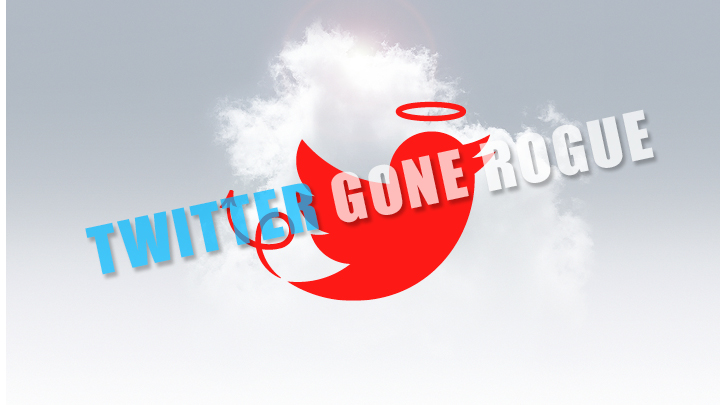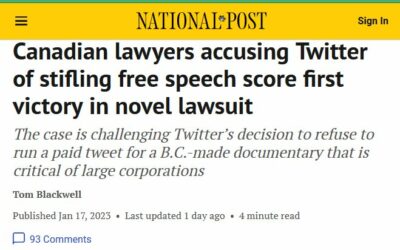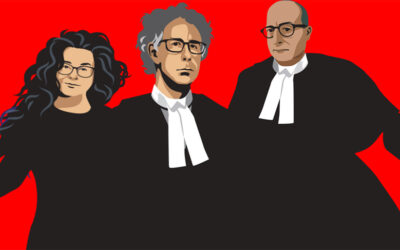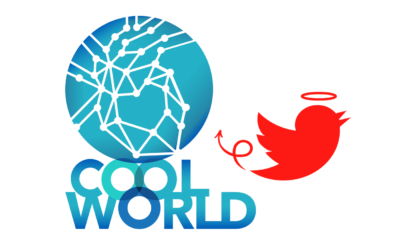Twitter Gone Rogue: Who governs content in Canada?
“The film is about the urgent need for more robust democracy and greater democratic control of corporations – including big tech. If Twitter doesn’t want people to know about this film, what else will it censor?”
– Joel Bakan, writer, co-director (with Jennifer Abbott), and executive producer of The New Corporation, and part of the legal team.
Filmmaker, author, lawyer Joel Bakan – who was part of the the team behind the global documentaries The Corporation (the highest grossing documentary in Canadian history) and now is co-director and author of The New Corporation: The Unfortunately Necessary Sequel, is suing Twitter and the Canadian government in a landmark case to establish responsibilities of tech platforms.
It all started when Twitter refused to let us buy and ad for the trailer for The New Corporation. Twitter claimed the posts were too “political,” “sensitive,” and “inappropriate” to be promoted on its platform. The posts feature clips and voiceover from, among other notable commentators, Alexandra Ocasio-Cortez, Michael Sandel, Vandana Shiva, Bill Gates, and Anand Giridharadas.
The case is based on the claim that Twitter, because of its central role in Canadian democratic discourse, is legally prohibited from restricting political and social speech that causes no harm – such as The New Corporation post – in the same way that governments are.
Key Facts
- During promotion for The New Corporation, which is a sequel to the multi-award-winning The Corporation, the top performing documentary in Canadian history, Twitter declined to allow posts of the trailer for the film to be promoted as ads.
- No satisfactory explanation for the rejection was ever provided – Twitter simply claimed the posts were “political,” “inappropriate,” and “sensitive,” and thereby offended its policies.
- The rejection negatively impacted the visibility of the film and its launch, and also had tangible negative effects on the film’s performance and brand recognition
- Decisions about Canadian-running content were made out of California, calling into question Canadian content sovereignty.
- The case is fundamentally different from Donald Trump’s case against Twitter – Canadian free speech law, unlike its US counterpart, and more like that in most other countries, accommodates free speech claims against non-government actors like Twitter, and does not protect incendiary, hateful, discriminatory and other types of harmful speech.
For more on the lawsuit, visit our campaign page.




